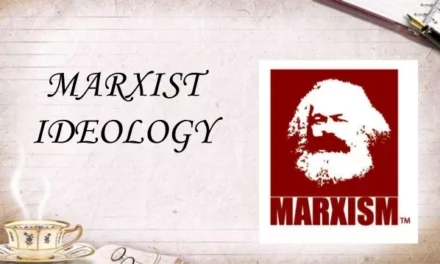
Plato in his ‘Republic’, rated democracy quite low on desirability as a system of government, just ahead of tyranny. Churchill rated it the worst, except for all the others. And despite most western countries having turned the idea of democracy into a virtual religion, it is, at the less ideological level, losing rather than gaining adherents.
Just a century after gaining full suffrage in the UK, even general elections struggle to reach a 70% voter turnout, with most citing a mistrust of politicians and that oft heard ‘They’re all the same’. The disaffected electorate can also see that the fundamental democratic principle of freedom of speech, no longer seems to exist in our now polarised post Brexit, Covid, Ukraine world. Anyone who happened to be on the other side of the accepted narrative on any of these issues, quickly found themselves cancelled.
There is the feeling that elites are not only out of touch with the experiences of the common man, there is the perception that there is no longer equality in the eyes of the law; police and the courts are quite partisan when dealing with protesters, with a heavy leniency towards the antics of undemocratic groups like antifa/BLM while coming down hard on those deemed as right-wing. And neither is the MSM even handed in their coverage as we all know that the National Union of Journalists are obliged to be unsympathetic when covering the views and people of a right-wing/patriotic persuasion.
People no longer see democracy as a protector of their freedoms – quite the opposite. This does not bode well, as one of the cornerstones of a healthy democracy is a high level of voter participation and trust.
However, it would seem that voters are right to mistrust most politicians as they never seem to deliver what they promise pre-election. When given the chance, voters overwhelmingly cite immigration as a major concern. What do they get? An economy shattering commitment to green Net-Zero on emissions by 2050 and 1 million immigrant visas issued in 2021. Democracy might have indicated a Net Zero commitment on immigration would have been a good start.
These 1 million newcomers will also at some point, form part of the electorate and what with the push for incarcerated criminals to be allowed to vote, it is understandable that this further devalues the democratic system. I am personally of the opinion that Democracy cannot function well in multicultural societies, as I feel that those who fashioned it, could not envision anything other than homogeneous populations, which of course we generally were up until about 50 years ago.
Given how often our rulers chant about the glories of democracy, it is hard to believe that there was a time in living memory when both the left and the right were sceptical of it. Some on the right saw it as little better than mob rule, pitting faction against faction to the detriment of the better interests of society as a whole, while the left saw democracy, while theoretically a good, might lead to short-term thinking. The current political class bear out the argument of ‘mob rule’ as it seems to have attracted career politicians who appeal to base instincts in their concern about the next election, rather than enact policies to ensure the future of our children.
In the mass media age, this is made worse by the need to respond in real time to every comment and event. Even if a politician wanted to take the long view, he has no time to do it as he is required to respond endlessly to every hot issue, and always with an eye on the next election. Mass media call the shots by framing the narrative and by focusing only on the moment, the trivial takes on an air of profundity. Small decisions are talked about as if they are a pivotal moment in the life of society.
And all is justified in the evangelical spread of the religion of Democracy.
So, is Democracy itself now the problem? Critics accuse democracy of suffering from many flaws, just to cite a few:
Short Termism
Due to their electoral cycles, democracies struggle to focus on long-term problems and usually remain mired in short-term policy approaches. Everything is about political competition, with no room for morality or what might constitute ‘the greater good’. Why should a government take unpopular but necessary long-term measures like tackling budget deficits, when they will probably be punished at the next election and the incoming party will reap the benefits of a healthier treasury. Sweeteners may be offered as elections loom, in the form of tax cuts. Regular changes in political leaders also contribute to instability; how can there be any sort of continuity, when parties seem to change their leaders every couple of years. Frequent party changes also means on-going changes in both domestic and international policy.
Democracy encourages political short-termism because it rewards political parties for placing a narrow focus on what they need to do in order to win the next general election, rather than thinking about what impact their policies are likely to have over the much longer-term. The tendency of politicians to avoid any fiscal or other such economic reforms that involve near-term belt-tightening has become a major problem for the fiscal health of countries. Quite a few politicians talk a good game about the need for budget austerity, but when push comes to shove reveal themselves to be deficit doves.
Raising taxes, for instance, is never popular: it loses votes and loses elections. It is easier for governments to borrow money, to be paid off in the long-term, to fund spending in the short-term. A classic case of short-term thinking has come to light amid the current energy crisis – the Tory government in 2017 decided to wind down gas storage rather than subsidise what were seen as costly repairs at the time. Gas was cheap and plentiful at the time and the government, in pursuit of their Net-Zero obsession, wanted to encourage a move away from gas anyway. The result of this short-termism is that we now have no gas storage and we continue to supply gas to Europe, when we might have had the capacity to save our gas for our own population who may now be facing a winter of discontent.
Elite Capture
This is currently more problematic in the US where competition among politicians who are constantly in need of money for elections, results in democratic systems which are prone to becoming captured by the wealthy. Multiparty competition American-style has come to involve enormous amounts of money flowing into the system from wealthy individuals and corporations aimed at safeguarding their interests. Many legislative and executive policies manifestly reflect the interests of the wealthy more than the poor, including numerous tax benefits specifically designed to help certain groups of wealthy individuals and powerful corporations.
The distorting and often corrupting role of money is almost always an issue in democracies. Tax breaks and other policies that contribute to high levels of inequality, especially the rapid expansion in recent years of a class of super-rich citizens. Many tech billionaires use their money and their platforms to push their agendas and silence the voices of the opposition. George Soros has used his billions to push movements like BLM and Defund the Police, he has also backed certain politicians/legislators who push his society-wrecking policies.
Fostering Divisions
Competitive elections foment or exacerbate destructive societal divisions, generating conflict and undercutting a strong sense of national unity and purpose. Democracy has allowed noisy minorities to hijack the political arena – the Trans and BLM lobbies have influence way beyond what their numbers would dictate in a so-called democracy.
The tendency of competitive democratic politics to entrench and sometimes intensify basic divisions within a society is something that genuinely puzzles many observers from China, Russia, and other non-democracies. They often scratch their heads over why democracies think it makes sense to have a political system that seems to sharpen societal divisions rather than emphasizing consensus and unity.
The public has lost trust in the judiciary, the police, the MSM and many other key institutions, and this fuels social tensions and anger.
It is not hard to see how democratic electoral competition can pull a country into polarization. Competing parties often have incentives to accentuate differences between them rather than to emphasize common ground, to caricature and even demonize their opponents, and more generally to appeal more to emotion than reason in their quest for votes. In the recent Batley & Spen by-election, Labour distributed a leaflet in Muslim-dominated areas showing Boris Johnson shaking hands with India’s Hindu PM Narendra Modi, urging people to vote for someone ‘on your side’. Bribery, nepotism and impersonation in many Muslim enclaves, affects us all when it corrupts our electoral processes.
There has been a recent marked rise in polarizing political dynamics in democracies in different parts of the world. In Europe, angry populists are drawing harsh lines in the sand against well-established parties. In India, for example, the ruling party has played up Hindu nationalism in ways that aggravate divides within the society. Brazil has just been through its most polarizing election in many years. First-past-the-post electoral systems discourage the emergence of small or new parties and accelerate the movement away from the centre.
It is no longer even considered inevitable that elections in democracies will be free and fair.
Voter Ignorance
Relying on ordinary citizens to choose leaders and make judgements between them based on policy performance condemns democracies to leadership and policy choices that reflect chronic voter ignorance and irrationality.
And looking at the calibre of political leadership today, it would be hard not to see voter ignorance and irrationality as major concerns. One of the most basic design elements of democracy is the mechanism of performance accountability that is supposed to come from citizens voting. In simple terms, it is assumed that voters know what they want, are capable of identifying what policies will help them get what they want, and vote for candidates who pursue such policies and deliver results. But this is the romantic ‘folk theory’ view of democracy. There is no minimum educational requirement in the government of the people by the people and it would seem reasonable to limit the power that the irrational, the ignorant and the incompetent might have in a democracy. The US did actually have voter literacy tests that were only abandoned in 1975.
Voter behaviour is more likely determined primarily by partisan identities, based on various sociocultural factors, especially race, faith, and peer groups. In other words, voters’ policy preferences are shaped by their partisan identity, rather than independent thought on any particular issue. They also find that most voters are far too ignorant of political actors and policies to accurately associate specific policy choices with particular parties or candidates. Partisan loyalties are relatively fixed, but voters are enormously inconsistent on specific issues.
Low levels of civic literacy and high levels of voter ignorance seem to be the reality in most democracies. I tend to believe that there should be a minimum level of intelligence requisite to vote and I also believe that the old limits on the franchise restricting it to property owners are preferable to the current universal franchise, where those who have contributed nothing to society can dictate to those who have. However, I do favour referenda and was glad of the opportunity to vote Leave, even given the very undemocratic backlash from the Remain camp.
I also think that if any decision to go to war rested on a referendum, there would always be a resounding NO – no great level of intelligence is required to know that wars create more refugees and immigrants to the countries promoting the war. Most recent wars have had no basis in national interest and many have been waged under the banner of spreading Democracy. The media are always complicit in supporting war and the government can rely on them softening up public opinion in favour. The media themselves promote voter ignorance and the preferred narrative on serious issues like Covid and Ukraine by not being truthful. They direct attention towards politicians’ minor misdemeanours while failing to inform the public on the context of Russia’s involvement in Ukraine. An ignorant person’s vote is worth as much as that of the well-informed.
We want less war, less immigration and more housing – what we get is endless wars and endless refugees/immigrants all requiring housing at the expense of the indigenous population. Billions of pounds available for Ukraine to pursue a war that it has no chance of winning (and we have no national interest in), and then no doubt, more billions to rebuild Ukraine in the aftermath. What is the point of a sham democracy when we have no say in the really important decisions like ‘war’ and our constant call for less immigration goes unheeded?. We are currently, essentially without a PM, because both the MSM and most politicians have focused their attention on the trivia of partygate and Number 10’s soft furnishings, while Ukraine has gone under the radar unquestioned. Manipulation of public opinion is rife with fake news and misinformation
Meanwhile Russia and China’s autocracies have been able to parry the moves by the West in the current economic war because they were ready for them. I was surprised to see a BBC article entitled ‘Arabs believe economy is weak under Democracy’ – seems the Arab Spring has fizzled out like a damp squib in the face of economic realities, they now confess the need for a strong leader who can ‘bend the rules’ if necessary for the greater good. Autocratic leaders are not bogged down in hot-issue democracy and chasing momentary popularity, they are too busy thinking about the future and how best to prepare their citizens for it. Authoritarian rule equals Unity, Consent and Nationalism. Democracy equals Division, Dissent and Multiculturalism.
Perhaps this is how liberal democracy must end. It becomes increasingly focused on the short term to the total exclusion of the longer term. Meanwhile it goes looking for momentary enemies, only to come face-to-face with some who think long-term.



















